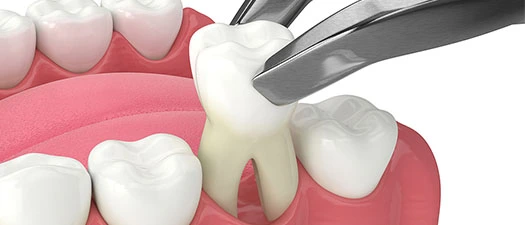Treatments
Extractions and wisdom teeth extractions
Here at Surrey Dental Practice, we offer in-house extractions and in some cases, surgical extractions if suitable. Otherwise, we will refer you to a hospital using the NHS referral system.
Extractions are usually required if a tooth is:
- Badly decayed or damaged and is not restorable
- Loose or mobile due to gum disease or trauma
- A wisdom tooth, which has come through and impacted, caused localised infection or affected the adjacent teeth
In some cases, for example for children or nervous patients, or where a tooth might be difficult to remove, sedation (something to make you drowsy) along with a local anaesthetic may be used. In rare occasions, a general anaesthetic may be considered. If a general anaesthetic is needed, you will have to go to hospital.
After working out the best way to take the tooth out, your dentist will discuss with you:
- How to make sure you don’t feel the extraction while it is happening
- When it would be convenient for you to have the tooth removed
- Other treatments you may need, for example whether you require a denture, bridge or implant to fill the gap
You may hear some noise and feel some pressure as the tooth is being eased out, but no pain.
Sometimes stitches are put into the gum to help the mouth heal.
Afterwards, you may need a day or so off work to recover, depending on how difficult the extraction was and whether sedation or a general anaesthetic was used.
The dentist will give you a pad of gauze to bite on, to stop any bleeding.
The dentist will give you advice on:
- How to look after the space where the tooth was while it is healing
- How to use painkillers so you are not in any discomfort when the anaesthetic wears off
- How to contact the practice if there are any problems
